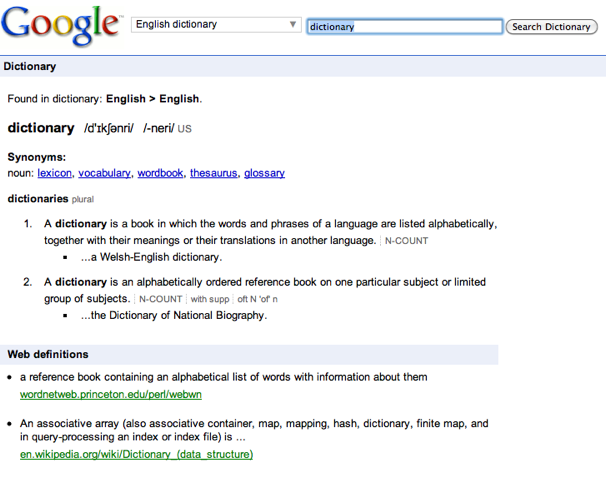 Google has quietly rolled out its own online dictionary, complete with multilingual support and accompanying photos. The new site was first discovered by the LA Times Tech Blog, and you can access it at Google.com/Dictionary.
Google has quietly rolled out its own online dictionary, complete with multilingual support and accompanying photos. The new site was first discovered by the LA Times Tech Blog, and you can access it at Google.com/Dictionary.
It works exactly as you’d expect: type in a word, and Google will give you the definition, part of speech, and maybe a similar phrase or two. If you’re logged in, you can star a word for future reference.
The new dictionary obviously isn’t good news to the many other web dictionaries. Answers.com, in particular, stands to lose out, as it is currently Google’s default whenever a user clicks the “define” link on a Google results page. The Times article says that Google now uses its own dictionary as the default, but I’m still seeing Answers.com as the source, so apparently the switch isn’t live for everyone.
Google has actually offered some dictionary features for a long time. If you Google a query using the format “Define:word“, the search engine will present you with a handful of definitions it finds on sites scattered across the web. Some of these definitions usually come from well known online dictionaries; others, from obscure web sites, which can make the results inconsistent. These aggregated definitions have been available on Google.com/dictionary before now, and now compliment Google’s own in-house definitions.
For those wondering if Google might further expand into territory traditionally owned by reference books — it already has. Last year it launched Knol, a user-edited encyclopedia. That venture hasn’t gone very well: after failing to draw much interest as an encyclopedia, people started using Knol as a poor man’s Craigslist.

Image by ElektraCute